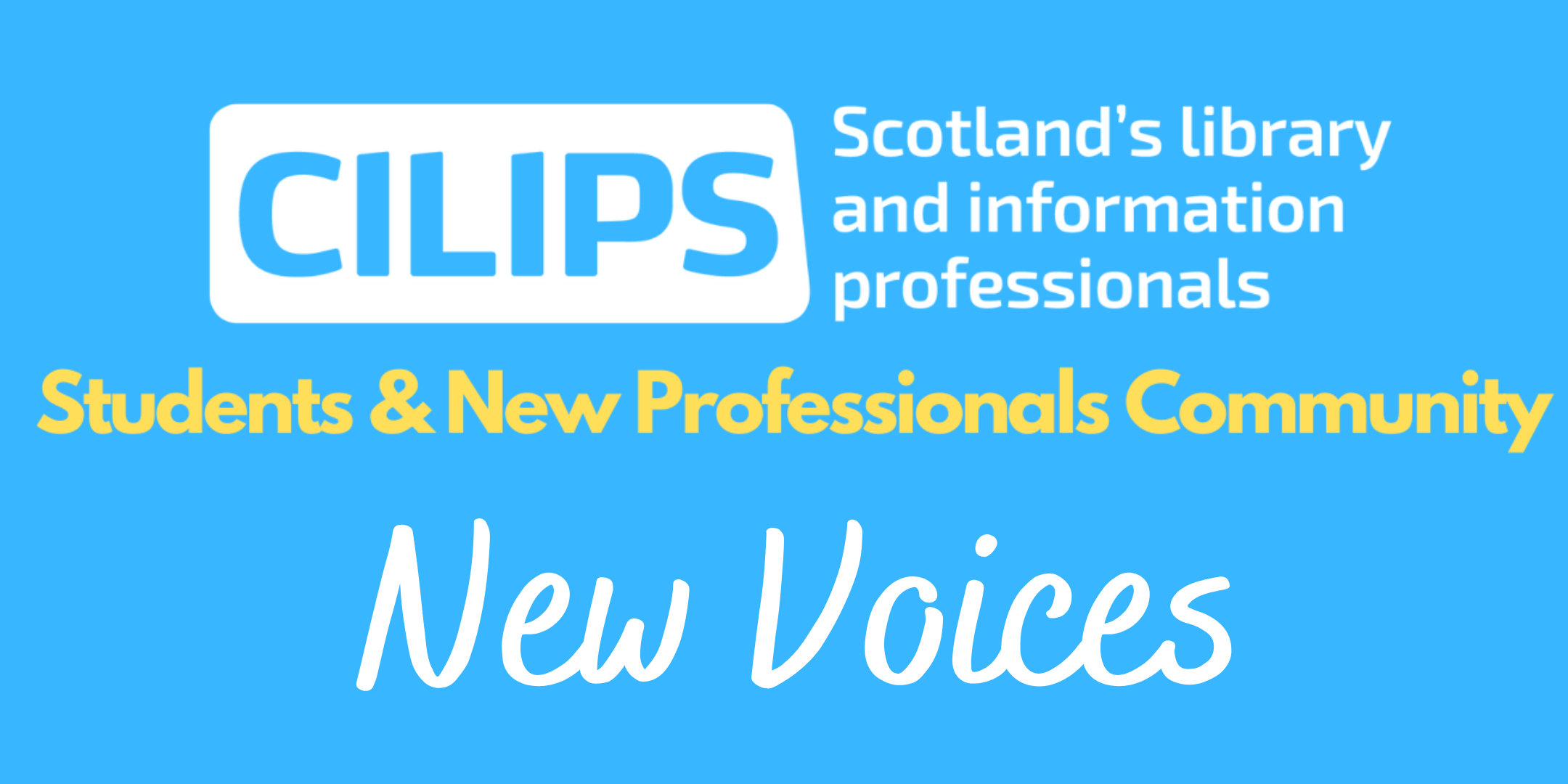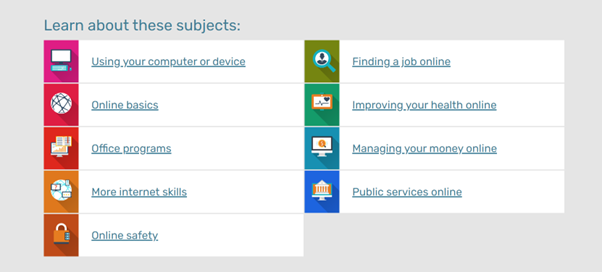New Voices RGU Student Series 2023 – Stephen Robinson
Category: Blog, New Voices, New Voices, RGU Student Series

In this 2023 Student Series for the New Voices blog, the CILIPS Students & New Professionals Community will be sharing the views of Robert Gordon University students from the MSc in Information and Library Studies. With special thanks to Dr Konstantina Martzoukou, Teaching Excellence Fellow and Associate Professor, for organising these fantastic contributions. This series will be shared by CILIPS Graduate Trainee Leah Higgins.
 Today we are hearing from Stephen Robinson, who alongside his studies, currently works at Jersey Library, where he is the team leader.
Today we are hearing from Stephen Robinson, who alongside his studies, currently works at Jersey Library, where he is the team leader.
What is the role of information professionals in supporting the development of information literacy skills?
Spend any time in a public library and you soon realise how important the role of information professionals is in supporting people to develop their information literacy skills. The role is usually informal, time-bound (in the sense that all library users must be considered), and one that embraces the wide variety of information requirements that are part of everyday life (Matteson and Gersch, 2020 p. 72). People from all walks of life come through the doors of a public library, and information professionals are adept at meeting the needs of these library users. Yet, this role needs to be understood more effectively, including a clearer idea of what information literacy means in practice in a public library.
According to CILIP (CILIP, 2018 p.3), the professional organisation for librarians and information professionals: “Information literacy incorporates a set of skills and abilities which everyone needs to undertake information-related tasks.” This is information literacy at its most fundamental level. But CILIP also acknowledges that information literacy is about how such skills and abilities are applied as well, which means that it’s also about critical thinking: not taking things at face value. Given that information comes in many different forms, the interconnectedness of information literacy and, say, digital literacy needs to be borne in mind (CILIP, 2018). Digital literacy is not just about knowing how to use a computer: it’s also about how those skills are applied and used (JISC, 2014).
Information professionals support library users every day in accessing information. Increasingly, this is about how to approach information online, as “digital problem solving has become an integral part of daily life” (Jacobs and Castek, 2018 p.681). However, we must remember that a digital divide does exist. A significant number of people, often the most disadvantaged and the elderly, are effectively shut out of being to participate as fully in society as they would like (Barrie et al, 2021). Information professionals therefore play a crucial role in supporting people with the development of these skills, especially those who are not in school or who don’t have access to professional development (Jacobs and Castek, 2018 p 683).
Two key challenges exist, however. The first is time. A recent study found that most interactions in ICT support in libraries lasted no more than 15 minutes. The study concluded that libraries could incorporate “micro-learning” opportunities – digital screens with learning materials, for instance – to provide a more strategic approach to supporting information literacy skills (Matteson and Gersch, 2020 pp. 86, 87). Online resources, such as Learn My Way, are invaluable in supporting library users with developing their information literacy skills. From personal experience of using this, Learn My Way allows library users to learn at their own pace and enables staff to be on-hand to support where necessary.
Figure 1. An overview of subjects available as taken from the Learn My Way website. Source: Learn My Way
The second challenge is one of confidence on the part of information professionals that they have the skills necessary to support library users in using technology to access information (Crawford, 2013 pp. 192-93). Information professionals must continually develop and reinforce their skills to ensure that they maintain their own confidence in supporting users. The recently launched digital skills training from Libraries Connected is a useful resource: one module covers the essential skills; the other focuses more specifically on media and information literacies (Libraries Connected, 2022). More research is needed, however, on the effectiveness of information literacy skills development in public libraries, and baseline guidelines could be put in place that can evolve as our information seeking requirements evolve (Crawford, 2013) The information professional plays a crucial role in helping people to develop their information literacy skills. Yet it’s also up to the information professional to ensure that they can continue to support library users as the information landscape evolves.
Many thanks to Stephen for this informative piece on what the role of Information Professionals are in supporting the development of Information Literacy Skills.
Stay tuned for more in the 2023 New Voices RGU Student Series coming soon and be sure to check out the rest of CILIPS SNPC’s New Voices blog.
Bibliography
BARRIE, H. et al., 2021. “Because I’m Old”: The Role of Ageism in Older Adults’ Experiences of Digital Literacy Training in Public Libraries. Journal of Technology in Human Services, 39(4), pp. 379-404.
CHARTERED INSTITUTE OF LIBRARIANS AND INFORMATION PROFESSIONALS (CILIP), 2018. CILIP Definition of Information Literacy. [online]. London: CILIP. Available from: cilip_definition_doc_final_f.pdf (ymaws.com) [accessed 28 November 2022].
CRAWFORD, J., 2013. Employability, informal learning and the role of the public library. In: J. CRAWFORD and I. IRVING, eds. Information Literacy and Lifelong Learning: Policy Issues, the Workplace, Health and Public Libraries. London: Chandos. Pp.177-210.
JISC, 2014. Developing Digital Literacies. [online]. London: JISC. Available from: Developing digital literacies | Jisc [accessed 28 November 2022].
HACKETT, D., 2018. An elephant in the room? Information literacy in the narrative of UK public libraries. Journal of Information Literacy, 12(1), pp. 4-26.
JACOBS, G.E. and CASTEK, J., 2018. Digital Problem Solving: The Literacies of Navigating Life in the Digital Age. Journal of Adolescent & Adult Literacy, 61(6), pp. 681-685.
GOOD THINGS FOUNDATION, 2022. Learn My Way. [online]. Available from: Home | Learn My Way [accessed 28 November 2022]
LIBRARIES CONNECTED, 2022. Libraries Connected Learning Pool. London: Libraries Connected. [online]. Available from: LC LMS: Digital, Media and Information Skills (learningpool.com) [accessed 6 February 2023]
MATTESON, M.L. and GERSCH, B., 2020. Information literacy instruction in public libraries. Journal of Information Literacy, 14(2), pp. 71-75.
